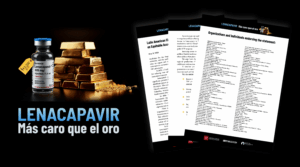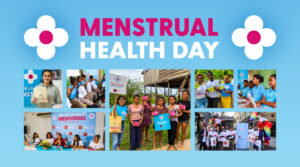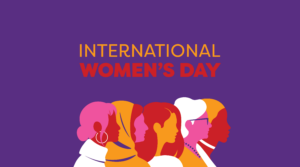Although HIV infection is controlled, a person living with the virus is more exposed to health risks than if they did not have it. For example, diseases related to age or unhealthy habits, such as hypertension or diabetes, occur more frequently in people with HIV than in the rest of the population.
In the case of diabetes, a recent study involving almost 40,000 people with HIV found that women are significantly more likely to develop type 2 diabetes, compared to men living with HIV and other women who do not have HIV. , reported the specialized website Aidsmap.com.
Large-scale comparison
The investigation consisted of a review of a database of more than 300 hospitals in the United States. For it, certain conditions and habits of the participants were taken into account, such as their age, their ethnic group, their body mass index and whether they smoked or not. This is because obesity, older age and genetic profile (Afro-descendant or Latino) are risk factors for developing diabetes.
The analysis, published in the medical journal AIDS, did not consider data related to HIV, such as blood viral load, history of antiretroviral treatment or CD4 cell count (the body’s defense cells), so the risk of diabetes is calculated only taking into account the fact of having or not having HIV.
A total of 39,485 people with HIV were compared to 19,182,000 people without the virus, using data collected between 2016 and 2021. Proportionally, people with HIV were younger, more likely to be of African descent, and more likely to smoke than those with HIV people in the group without HIV.
An indisputable relationship
The results of the analysis clearly showed that there is a relationship between HIV and type 2 diabetes in women, even when the aforementioned factors are taken into account.
Among people with HIV, 23% of women had diabetes, compared to 16% of men. Of those without HIV, 14% of women had diabetes, but the percentage of men was slightly higher, 17%.
This means that women with HIV are 1.3 times more likely to have diabetes than those without the virus.
Obesity is known to be more frequent in people with HIV who are on antiretroviral treatment, which could explain the fact that this condition has been found more in women with HIV than without it (49% and 46%, respectively). . However, when this factor was removed from the cluster analysis, the association between HIV and diabetes was even higher: women with HIV who were not obese had a 1.41 times greater risk of having diabetes than non-obese women without HIV.
The researchers note that HIV appears to increase the risk of diabetes in people who are not at increased risk because they are not overweight. Among obese HIV-positive women, the virus also increases the risk of diabetes, but the impact is less since obesity itself also contributes to strengthening this relationship.
On the other hand, the study concludes that men with HIV are not at greater risk of diabetes than their peers without HIV.
New line of research
The fact that the link between HIV and diabetes has been shown in women and not in men opens a new line of scientific research, say the authors. We will have to discover the biological mechanisms that may be involved, in addition to paying attention to the effects of the virus on the body and the side effects of antiretroviral drugs.
One theory advanced by the research team is that women have a stronger innate immune response to initial HIV infection (due to sex hormones), which would be beneficial in controlling the virus but could lead to greater resistance to HIV insulin over time.
In short, the health of people with HIV is complex and requires specialized care, which depends on an adequate diagnosis. If you have never had a screening test, at AHF Latin America and the Caribbean we carry out free HIV tests. If you already have a diagnosis but have not started your treatment, we can also help you. Just go to our nearest office in your country or write to us on Whatsapp.







